Don't Look Back, Tailgate, The Owners, The Reckoning
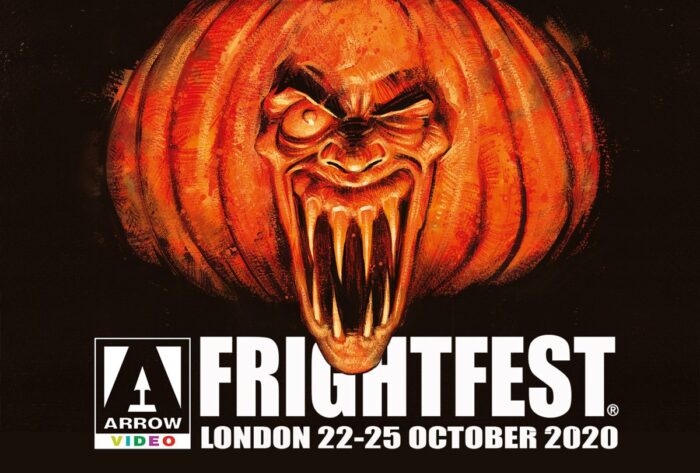
Day three! And what a mixed one it looks like – let it never be said horror isn’t a diverse genre. There’s a high-octane chase movie, a home invasion with a twist and what’ll hopefully be a return to form for one of my old favourites: Neil Marshall. Before all that happens though, here’s a supernatural thriller about karma.
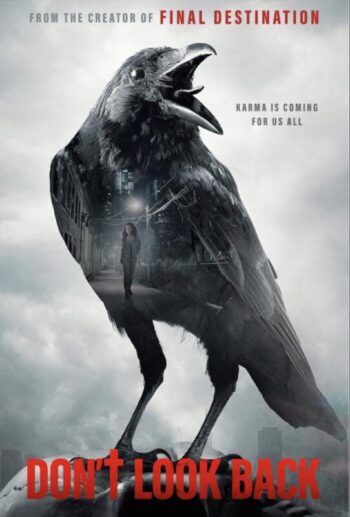
DON’T LOOK BACK
Directed by Jeffrey Reddick
There’s a well-known quote, often attributed to Edmund Burke, that says “the only thing necessary for the triumph of evil is for good men to do nothing”. In other words, if we stand by while other people do bad things, we’re implicated too. This happens to Caitlin. She’s a young woman glued to the spot, held there by her own trauma, as she watches a man get beaten to death. She and her fellow bystanders are, unrealistically, named and shamed by the press – dubbed The Bad Samaritans and hounded. However, it’s not only the paparazzi after them. There also seems to be a supernatural force intent on revenge, which kills them off one by one. And it doesn’t seem likely anyone’s coming to their help. Something I did like about Don’t Look Back is it’s more morally ambiguous than the in your face opening montage, of people casually watching other people die in the street, suggests. It takes the time to remind viewers that the killer could have a gun or may be able to overpower them. Besides, isn’t it better to call the police than be a have a go hero?
It’s a good idea, and that’ll be enough to keep viewers watching. Director Riddick does a reasonable job of integrating these moral dilemmas with a fast-moving plot that thankfully doesn’t waste too much time with the psychosis question – is Caitlin just losing it? That being said, it’s difficult to see where most of the running time goes with this one. I was never bored, but when the credits rolled, it felt like both too much, and too little had happened. A lot of the mid-section is devoted to coincidences, and vague attempts to find rules to who dies. As such, we barely get to know the characters, with most of them being introduced only to die. And the few kills we get mostly happen off-screen too: a far cry from the elaborate how-done-it (?) symphonies from Final Destination – which it shares both thematic DNA and a creator with. Although it’s worth adding a real strength of Riddick is making things seem normal, or even nice, and then taking a sledgehammer to the scene.
These choice moments aside, it builds to an underwhelming ending that I suspect many people will see coming. It’s also reliant on some of the worst horror movie police work this side of Black Christmas. Still, I’d be lying if I said I didn’t have some fun along the way. More than anything else, I think Riddick is more interested in delivering his message through a high-concept popcorn flick you can enjoy on your sofa – and that’s largely what he’s done here. It’s an entertaining, if lightweight, supernatural horror that will likely go down well with casual fans or those of a younger demographic. For the rest of us, it’s easy enough to enjoy, mostly guilt-free.
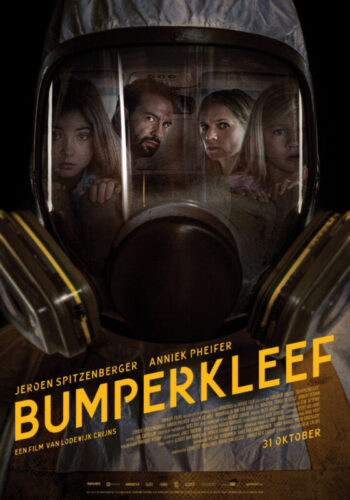
TAILGATE
Directed by Lodewijk Crijns
Horror in the fast lane. The people being chased by a vehicle subgenre never really took off after Duel, save for Joy Ride and the first half of Jeepers Creepers. Tailgate is an attempt to rectify this: a Dutch driving horror that sees the self-confident, cocksure, but ultimately insecure, Hans and his family (wife and 2 kids) being hounded by a mad man in an anonymous white van. Ed may seem mild-mannered and harmless, but you tailgate at your peril. It’s a simple idea – the best ones often are. Importantly, Crijns gets a lot of mileage from it – producing an adrenaline-fuelled chase through rural/ suburban Holland, with lots of road rage and a hell of a lot of suspense.
At first, I wasn’t sold on Ed – a baddy with more than a passing resemblance to Joe Biden. He’s petty, which normally doesn’t make for a great villain. Though when combined with him being a stone-cold psychopath, it’s a lethal combination. We see what he can do at the start, during a protracted pre-credit sequence in which he offs a nameless biker – maybe he didn’t indicate. And as it goes on, he gets increasingly nasty. As a foil to Hans, who has similar issues with pride, he’s brilliant. Speaking of Hans, the family cast is very believable together, and the humorous scenes at the start where they squabble could be taken out of so many real road trips. I was invested in the safety of each of them from the moment Ed first tells them a threatening story about rats in the petrol station.
The scariest bits are in the confines of the car though. As impressive as the wide highway shots are, and the few sequences outside it, I loved how much tension he got from behind the wheel. There are arguments, loud horns going off from all sides, huge trucks hurtling beside them at over 100mph and other drivers getting too close for comfort. The drum-based soundtrack helps too, with the tempo changes corresponding to the pressure of the situation. Tailgate is an exceptionally stressful film to watch – and I mean that in the best way possible. Anxiety inducing, nerve-wracking and ever so exciting. If there’s a problem, it’s that the third act, in which there’s a slight change to the format, doesn’t quite land. Hans’ character journey is complete, and there is resolution. Though try as he may, Crijns can’t quite match up with the intensity of what came before. To be fair, few films I’ve seen this year could. Full throttle horror.
TAILGATE will be available on Digital HD October 26
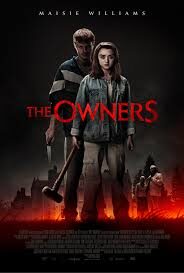
THE OWNERS
Directed by Julius Berg
Picking between this one and Kohl Glass’ Babysitter Must Die was a tough choice, though what swung it for me was the casting. The Owners brings together yesteryear legends Sylvester McCoy and Rita Tushingham, as a cuddly (and wealthy) old couple whose house is ransacked by a group of boys: Nathan, Terry and Gaz. Oh, and Nathan’s girlfriend Mary, played by Game of Thrones star Maisie Williams, who none of them really want there. The plan is to loot the place, going into the big safe Terry heard about from his mum who is the cleaner, but they can’t get it open. Desperate to get the money, and escape their ‘shithole’ village, Gaz decides they should confront the owners directly to get the code for the safe. Only What ensues is a tense and twisty piece, in a single location, about classes and generational divisions: the wealthy Boomers and the underprivileged, disaffected youth.
The ways this film subverts the home invasion genre are not unprecedented – I can think of at least one recent movie that has done something similar Don’t Breathe. Still, there’s enough novelty to this one that it doesn’t feel as familiar as it probably should. Where Don’t Breathe derived most of its tension through the situation; this is a more character-driven piece. Each of the boys, and indeed Mary plus the titular owners, are multifaceted, and I liked the way that the script, co-written by Berg, never lost sight of the fundamental unfairness that motivates the action. Even their hostages acknowledge that they’ve been through a lot. And while this isn’t enough to make us sympathise with the things they do, particularly the vicious Gaz, it at least puts it in a context. The result is an excellent, and unpredictable, stand-off, which dominates the first half. Followed by an unpredictable second, that goes to some darker places than I was expecting. As good as the script is though, I think the cast overperforms with the material they’re given.
Each shows a wide emotional range, and I like that at times the film really pushes audience identification – what could a satisfying ending even look like here? The definite stand out is Sylvester McCoy. I say this with not a hint of nostalgia for Doctor Who since I’ve never seen a single one of his episodes. He plays a sweet, surreal man who also seems to have many secrets – like is it only money in the safe? But I’ll stop there at risk of saying too much. Berg juggles many balls, but all of the key mysteries are given satisfying answers, making for a decent third act. That being said, a late change in aspect ratio is baffling. I expect it was meant to enhance the claustrophobia, and make us feel trapped with the characters. In which case, Berg ought to have more faith in his own abilities as I was already there before the change. It seemed a gimmicky and I struggle to think of a design choice that’s so quickly put me off. Some of its best action and we can barely see it. Still, the last five minutes won me over again, ending on a creepy high that’ll stick with me. Considering the time I had with this one, and the Twitter reaction to Babysitter Must Die, I reckon I made the right choice.
THE OWNERS will be available on DVD and Digital HD February 15, 2021
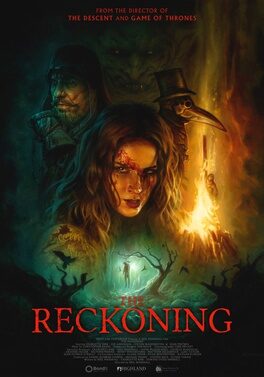
THE RECKONING
Directed by Neil Marshall
After a getting burned on Hellboy, genre favourite Neil Marshall is back with a period horror/ melodrama. It’s 1655, as the Great Plague spreads around England. Scared, the population turns towards superstition and blame it on witches. It’s against this backdrop that the newly widowed Grace has to bury her husband: who took his own life so he wouldn’t pass the disease on to her or their new baby daughter Abigail. Now destitute, and no form of income, her landlord tries to force her into paying her increasing debts with sexual favours. When she says no, he frames her as a witch, bringing upon her the wrath of the nation’s most ruthless Witchfinder General Judge Moorcroft.
It’s an enough interesting premise – even if period films about patriarchy are almost becoming a subgenre unto themselves (this is the second of the festival and there’s another due tomorrow). Witch trials are a fascinating topic, and I was keen to see one that treated the subject like a courtroom drama. The proceedings themselves are well captured, and there are enough dramatic stakes that I was invested in the outcome. As accomplished as it is though, Marshall’s film doesn’t offer much new, with a surface-level treatment of its themes and a mostly shallow script. By far the part is Moorcroft: sanctimonious and single-minded, but with difficult moments of introspection. As he tortures Grace, there’s an interesting conflict, and we wonder if he’s forcing a confession out of fanatical belief, or so he can live with himself. Grace herself is a far less interesting character, largely played for victimhood (in both the main narrative and the timelines) and tough to describe using unique adjectives. As a stand-in for the many women who suffered at the hands of witch hunters, she is more concept than character.
The Reckoning also commits one of the biggest sins that a period horror can: it isn’t very immersive. It looks and sounds great – with an organ-heavy score. Marshall has beautiful sets too – some of which look as if they were recycled from Game of Thrones. Frustratingly, the glamorous makeup detracts from the horror of the situation – as if Grace’s torturers need her to be photoshoot ready. The bright colours and dry ice also give it a campy music video vibe like a dark twist on Phantom of the Opera or Hammer without the schlock and awe. Other props, like top hats, aren’t of the period and ruin the authenticity. On that subject, the acting is reasonable all around. However, it’s hard to empathise with Charlotte Kirk since she doesn’t give the impression of a person who has been tortured for days. The bulk of the violence taking place offscreen doesn’t help this. I get that Marshall doesn’t want the audience to bask in these moments, since that’d be exploitative, though in showing neither the violence nor its consequence I don’t think he does the harrowing subject justice.





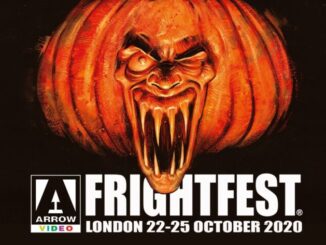
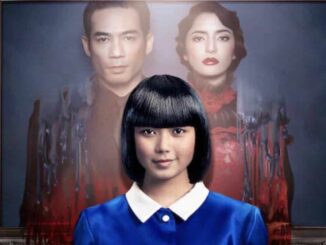

Be the first to comment